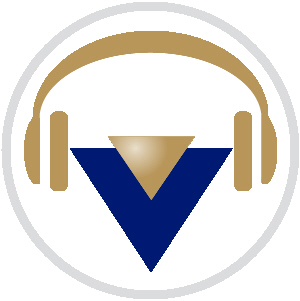 Listen to this story.
Listen to this story.
RVC

Royal Veterinary College photo by Richard Addison
The Royal Veterinary College's Hawkshead Campus in the town of Hatfield, north of London.
England's Royal Veterinary College is warning prospective students from the United States and Canada that they could face additional hurdles if they wish to practice in their home countries because the school could lose its accreditation in North America.
In order to hold North American accreditation, veterinary schools must meet 11 standards laid out by the American Veterinary Medical Association's Council on Education. Among those standards is the expectation that 80% or more of each school's graduates who sit for the North American Veterinary Licensing Examination pass. The NAVLE is a mandatory test for anyone who wants to practice in the U.S. or Canada.
Schools that fail to meet the pass rate for two consecutive years are placed on "probationary accreditation." Should they fall short for four consecutive years, they are placed on "terminal accreditation." In other words, they are on track to lose their accreditation.
The COE last March placed the Royal Veterinary College, or RVC, on probationary accreditation for substandard NAVLE performance. The accreditor extended RVC's probationary status this March, suggesting the school's substandard NAVLE performance has continued.
A spokesperson for the RVC confirmed the school fell short of the minimum 80% pass rate for three consecutive years — coming in at 71%, 63% and 60% for the 2021-22, 2022-23 and 2023-24 testing periods, respectively — and is trying to regain full accreditation.
"We are continuing to keep those currently enrolled updated on the process, including seeking clarification from the COE of the AVMA where required, and are providing support to those impacted through our dedicated NAVLE Support Programme," the spokesperson said.
Based on the COE's actions, it appears the RVC's pass rates also have not cleared the threshold of the exact binomial confidence interval, an alternative statistical calculation applied by the accreditor to programs with sub-80% pass rates. The calculation usually favors international programs with small numbers of students taking the NAVLE.
A substantial portion of the RVC's students hail from across the Atlantic. Among the 291 students graduating in 2024, for example, 69, or 24%, are from North America, the RVC spokesperson said.
Some of those North American students have just taken or are about to take the NAVLE, which is being administered through April 26.
A school's ultimate pass rate has historically been based on student performance during two testing windows: one in November/December and one in April. If a student fails the first try but passes on the second attempt, the second score is the one factored into their school's performance, according to Dr. Heather Case, chief executive of the International Council for Veterinary Assessment, which creates and administers the exam. (Beginning in the fall, the test will be offered during three windows per testing cycle.)
The RVC has written to prospective North American students, one of whom posted the letter to the social media platform Reddit. The anonymous poster said they received the letter on April 5. The RVC spokesperson confirmed the letter is genuine.
"We are writing to you today regarding a recent communication that the RVC has received from the Council on Education of the American Veterinary Medical Association regarding our accreditation," the letter states. "As you are probably aware, the RVC currently holds probationary AVMA accreditation status and is actively seeking to regain full accreditation, which it must do by 2026."
The RVC stresses in the letter that accreditation with other bodies, such as the European Association of Establishments for Veterinary Education and the U.K.'s Royal College of Veterinary Surgeons, is unaffected by any decision taken by the COE.
"If you enrol in September, you will still graduate from the RVC as a qualified veterinarian and will be able to practice in the U.K. and in all other countries [where] our accreditors are recognized, subject to local licensing and visa requirements," the letter states.
The RVC also has published some frequently asked questions about its North American accreditation on its website. Prospective students may withdraw their acceptance of an offer to attend the school, it says. However, as for deferment, the school said it doesn't consider probationary accreditation to be an exceptional circumstance that would allow them to defer their offer.
VIN News was able to contact the prospective U.S. student who posted the letter to Reddit. They requested to remain anonymous, and expressed disappointment that the school's probationary status wasn't mentioned to them when they were interviewed by the RVC during their application process.
Other posters to the same Reddit thread mused about why the RVC — broadly considered to be one of the best veterinary schools in the world — has so consistently fallen short of the minimum NAVLE pass rate.
One of those posters, a recent RVC graduate who VIN News also contacted, posited that curriculums in the U.K. are geared more toward "real-world" first-opinion practice, while the NAVLE has questions on a broad array of topics that may not be covered extensively at U.K. schools. The recent graduate also noted that some non-North American students at U.K. schools elect to take the NAVLE and may not be as motivated to pass the exam as their North American classmates.
The RVC spokesperson did not comment on potential reasons for the school's NAVLE underperformance.
The COE is the program accreditor for all Canadian and U.S. veterinary schools and 18 schools outside those countries. Programs need to be accredited or on track for accreditation in order for their students to access U.S. federal financial aid, including loans. Students from foreign schools that don't have U.S. accreditation can apply for the Educational Commission for Foreign Veterinary Graduates (ECFVG) certification program, which has four stages that include knowledge and hands-on clinical skills assessments. Foreign veterinarians have expressed concerns that a backlog to sit for the clinical skills assessment component of the ECFVG has left them in limbo.
University of Glasgow lifts NAVLE performance
The RVC isn't the only COE-accredited veterinary school in the U.K. that's been struggling with its NAVLE performance.
The University of Glasgow's School of Biodiversity, One Health and Veterinary Medicine also was placed on probationary accreditation by the COE last year. It achieved pass rates of 67% and 62% in the 2021-22 and 2022-23 testing periods, respectively, the school says on its website.
No pass rate is disclosed for the 2023-24 testing period. A spokesperson for the school would only say that its students who took the NAVLE in the most recent November/December sitting achieved a pass rate greater than 90%.
"We are very hopeful that our students will also perform well in the spring diet, in which case we will achieve an overall pass rate of 80% and return to full accreditation," she said.
The Scottish university, like the RVC, said all students wishing to sit for the NAVLE are provided with dedicated support services and that it had increased its offering "to include members of staff" allocated to provide NAVLE assistance. Other support measures, it said, include funded access to NAVLE preparation packages, individual review meetings, and guidance around "optimal preparation for and decision on timing of NAVLE attempts."